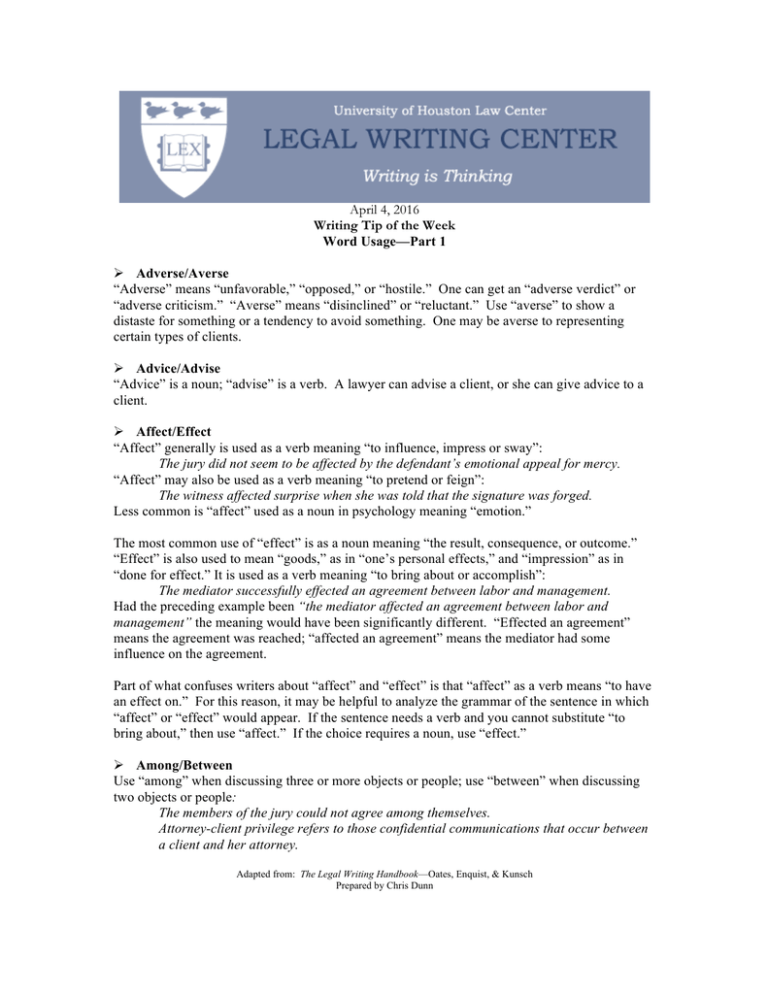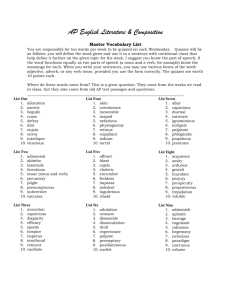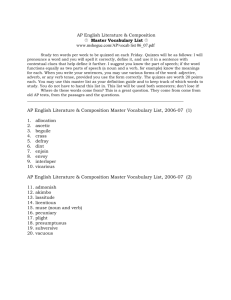April 4, 2016 Adverse/Averse Ø
advertisement

April 4, 2016 Writing Tip of the Week Word Usage—Part 1 Ø Adverse/Averse “Adverse” means “unfavorable,” “opposed,” or “hostile.” One can get an “adverse verdict” or “adverse criticism.” “Averse” means “disinclined” or “reluctant.” Use “averse” to show a distaste for something or a tendency to avoid something. One may be averse to representing certain types of clients. Ø Advice/Advise “Advice” is a noun; “advise” is a verb. A lawyer can advise a client, or she can give advice to a client. Ø Affect/Effect “Affect” generally is used as a verb meaning “to influence, impress or sway”: The jury did not seem to be affected by the defendant’s emotional appeal for mercy. “Affect” may also be used as a verb meaning “to pretend or feign”: The witness affected surprise when she was told that the signature was forged. Less common is “affect” used as a noun in psychology meaning “emotion.” The most common use of “effect” is as a noun meaning “the result, consequence, or outcome.” “Effect” is also used to mean “goods,” as in “one’s personal effects,” and “impression” as in “done for effect.” It is used as a verb meaning “to bring about or accomplish”: The mediator successfully effected an agreement between labor and management. Had the preceding example been “the mediator affected an agreement between labor and management” the meaning would have been significantly different. “Effected an agreement” means the agreement was reached; “affected an agreement” means the mediator had some influence on the agreement. Part of what confuses writers about “affect” and “effect” is that “affect” as a verb means “to have an effect on.” For this reason, it may be helpful to analyze the grammar of the sentence in which “affect” or “effect” would appear. If the sentence needs a verb and you cannot substitute “to bring about,” then use “affect.” If the choice requires a noun, use “effect.” Ø Among/Between Use “among” when discussing three or more objects or people; use “between” when discussing two objects or people: The members of the jury could not agree among themselves. Attorney-client privilege refers to those confidential communications that occur between a client and her attorney. Adapted from: The Legal Writing Handbook—Oates, Enquist, & Kunsch Prepared by Chris Dunn







